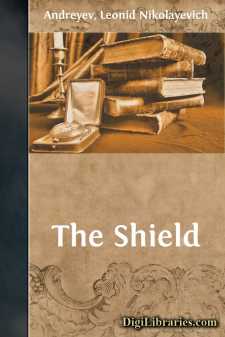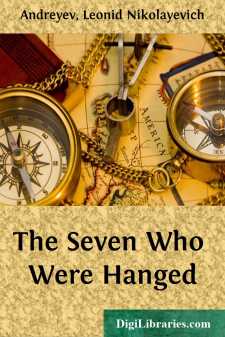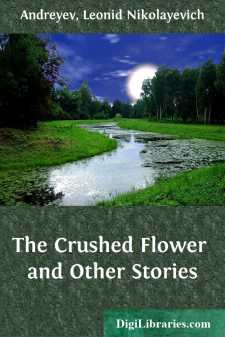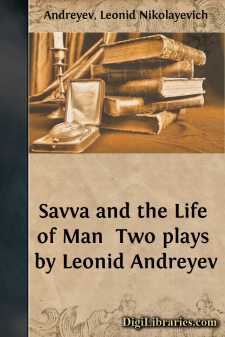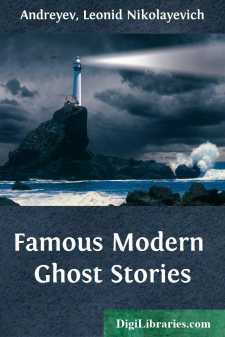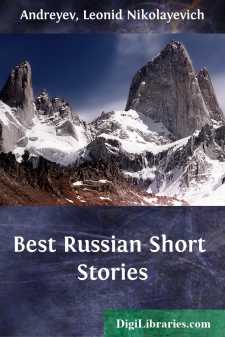Categories
- Antiques & Collectibles 13
- Architecture 36
- Art 48
- Bibles 22
- Biography & Autobiography 813
- Body, Mind & Spirit 142
- Business & Economics 28
- Children's Books 15
- Children's Fiction 12
- Computers 4
- Cooking 94
- Crafts & Hobbies 4
- Drama 346
- Education 46
- Family & Relationships 57
- Fiction 11829
- Games 19
- Gardening 17
- Health & Fitness 34
- History 1377
- House & Home 1
- Humor 147
- Juvenile Fiction 1873
- Juvenile Nonfiction 202
- Language Arts & Disciplines 88
- Law 16
- Literary Collections 686
- Literary Criticism 179
- Mathematics 13
- Medical 41
- Music 40
- Nature 179
- Non-Classifiable 1768
- Performing Arts 7
- Periodicals 1453
- Philosophy 64
- Photography 2
- Poetry 896
- Political Science 203
- Psychology 42
- Reference 154
- Religion 513
- Science 126
- Self-Help 84
- Social Science 81
- Sports & Recreation 34
- Study Aids 3
- Technology & Engineering 59
- Transportation 23
- Travel 463
- True Crime 29
Leonid Nikolayevich Andreyev
Leonid Nikolayevich Andreyev (1871–1919) was a Russian playwright and author, renowned for his works that combine elements of Symbolism and Expressionism. He gained prominence with his dark, psychological tales, often exploring themes of existential despair and the human condition. Some of his notable works include the play "He Who Gets Slapped" and the novel "The Red Laugh," which reflect his preoccupation with the morbid and the grotesque.
Author's Books:
Sort by:
FOREWORD This is not merely a book about the Russian Jews. It is a marvellous revelation of the Russian soul. It shows not only that the overwhelming majority of the Russian intellectuals, including nearly all of her brilliant literary geniuses, are opposed to the persecution of the Jews or any other race, but that they have a capacity for sympathy and understanding of humanity unequalled in any other...
more...
I am very glad that "The Story of the Seven Who Were Hanged" will be read in English. The misfortune of us all is that we know so little, even nothing, about one another—neither about the soul, nor the life, the sufferings, the habits, the inclinations, the aspirations of one another. Literature, which I have the honor to serve, is dear to me just because the noblest task it sets before...
more...
CHAPTER I His name was Yura. He was six years old, and the world was to him enormous, alive and bewitchingly mysterious. He knew the sky quite well. He knew its deep azure by day, and the white-breasted, half silvery, half golden clouds slowly floating by. He often watched them as he lay on his back upon the grass or upon the roof. But he did not know the stars so well, for he went to bed early. He...
more...
INTRODUCTION For the last twenty years Leonid Andreyev and Maxim Gorky have by turns occupied the centre of the stage of Russian literature. Prophetic vision is no longer required for an estimate of their permanent contribution to the intellectual and literary development of Russia. It represents the highest ideal expression of a period in Russian history that was pregnant with stirring and...
more...
INTRODUCTION Ghosts are the true immortals, and the dead grow more alive all the time. Wraiths have a greater vitality to-day than ever before. They are far more numerous than at any time in the past, and people are more interested in them. There are persons that claim to be acquainted with specific spirits, to speak with them, to carry on correspondence with them, and even some who insist that they...
more...
INTRODUCTION Conceive the joy of a lover of nature who, leaving the art galleries, wanders out among the trees and wild flowers and birds that the pictures of the galleries have sentimentalised. It is some such joy that the man who truly loves the noblest in letters feels when tasting for the first time the simple delights of Russian literature. French and English and German authors, too, occasionally,...
more...


